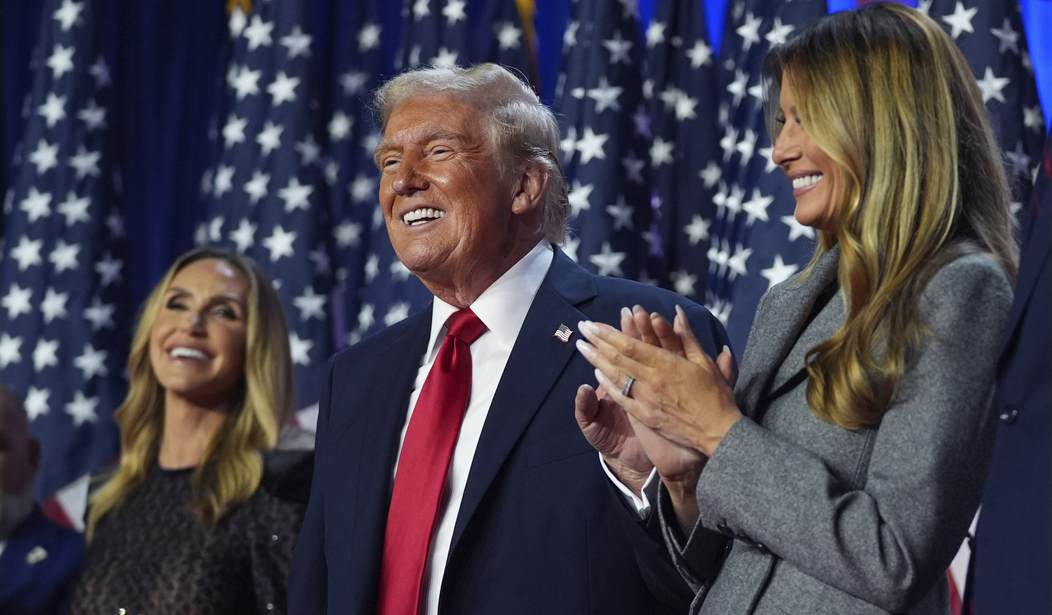President-elect Donald J. Trump published his Eleven Point Education Plan through a video on X, on November 10, 2024. His plan mirrors Chapter Seven of the Republican Platform, which was crafted by President Trump’s team. There are nine points to the Republican Education Platform and 11 to Trump’s recently published plan where it appears two workforce development points were added: internships and job and career counseling.
What follows are the 11 points of Trump’s plan.
- Respect the right of parents to control the education of their children.
- Empower parents and local boards to hire and reward great principals and teachers and fire the bad ones.
- Classrooms focused on knowledge and skills, reading, writing, arithmetic, science and other useful skills, not political indoctrination.
- Teach students to love their country.
- Bring back prayer to schools.
- Safe, secure and drug-free schools, with immediate expulsion of students who are violent in school.
- Ensure parents have the right to choose a different school for their children, school choice.
- Students will have access to project-based learning experiences inside the classroom to train them for meaningful work outside the classroom.
- Give all students access to internships and work experiences to set them on a path to their first job.
- All schools provide excellent job and career counseling to match kids to jobs suitable to their talents.
- Close the Department of Education and send all education back to the states. End education from coming out of Washington D.C.
The primary reason my organization endorsed candidate Trump was his campaign promises as articulated in points one and 11, to end federal education and return control to parents. Of course, with campaign promises, the ability to deliver is in the details.
While we may agree or disagree with points two to 10, we do not believe any of these goals should be up to the federal government to decide. We also assert that the federal government does not have the power to enforce any of these policies, although the federal government has used the power of the purse to persuade decisively.
Recommended
Trump’s point number seven, school choice, has been the mantra of Republicans for decades. On its face, “school choice” appears to be a viable solution for making alternative education affordable for parents who do not want their children indoctrinated through government schools. The problem is that once government money is infused into these alternative modes of education, they too will become controlled by the government.
In a 1980 court case affirmed by the U.S. Supreme Court, the federal government prevailed over Hillsdale College asserting that when an educational institution accepts students who receive government funds, it is subject to government regulation.
The safest way to make alternatives to government schools affordable is through tax credits on the state and federal levels. The federal child tax credit should be increased for parents who do not enroll their children in government schools, and states with income taxes should follow suit.
An increase in federal child tax credits will allow parents to keep more of their money to pay for education that best suits their child by paying fewer taxes.
President-elect Trump’s plan does not specify how he will send education back to the states, but there is momentum building toward block grants. It seems plausible that he intends to establish block grants that impose points two to 10 as requirements for states to receive the money.
If block grants do end up being the vehicle President-elect Trump uses to end federal intrusion in education, then U.S. Parents Involved in Education (USPIE) believes it should be the right of states to opt out of block grants in exchange for 80% of the value in federal income tax credits to its citizens. This approach aligns with USPIE’s Blueprint to Establish State Control of Education. The federal government benefits as this costs them less than the block grant, but no strings should be attached to the income tax credits. Tennessee, Utah and Oklahoma are already looking at refusing federal funds to evade liberal mandates and threats of losing funding for noncompliance.
Unfortunately, we suspect some Republicans will resist our proposal as they see the Trump plan as a way to “improve” education in the short term. USPIE will work very hard to make them understand that they cannot successfully implement points two to 10 from Washington D.C. Worse yet, if they attempt to do so, they leave in place a strategy for the Left to impose their beliefs back into education in the next swing of power. Too many Republicans have forgotten President Reagan’s famous line regarding the nine most terrifying words in the English language: “I am from the government, and I am here to help.”
Ironically, Democrat governors are already looking for ways to reduce President-elect Trump’s impact on their states, so it may be that they also seek to stop taking federal money for education. Bi-partisan support to end federal involvement in education could make it a reality.
The truth is, some states will not improve their education system following our proposal to remove federal influence. However, should this be realized, the opportunity to improve will exist everywhere for parents and communities who really seek out the best education practices.
Sheri Few is the Founder and President of United States Parents Involved in Education (USPIE) whose mission is to end the U.S. Department of Education and all federal education mandates. USPIE has established 20 state chapters and is growing rapidly amid the national outcry from parents who want to regain control of their children’s education. Few is a nationally recognized leader on education policy and is often quoted in conservative media. Few has written extensively about critical race theory and served as Executive Producer for the documentary film titled “Truth & Lies in American Education.”

























Join the conversation as a VIP Member